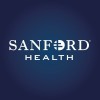
Efficacy Of Oral Trehalose In Spinocerebellar Ataxia 3
Spinocerebellar Ataxia Type 3This study evaluates the effectiveness of oral trehalose in alleviating the neuropathological and motor behaviour deficits among patients with SCA3. A total of 40 participants with SCA3 will be recruited, with 20 participants to be administered with trehalose while another 20 participants to be administered with a maltose placebo.

A Safety and Pharmacokinetics Trial of VO659 in SCA1, SCA3 and HD
Spinocerebellar Ataxia Type 1Spinocerebellar Ataxia Type 31 moreThe goal of this first-in-human clinical trial is to assess the safety and tolerability of four doses of a new study drug called VO659 in people with genetic disorders called spinocerebellar ataxia type 1, type 3 or Huntington's disease. Another aim is to determine the concentrations of the study drug in the cerebral spinal fluid and blood after single and multiple doses. Study drug will be administered by lumbar intrathecal bolus injections.

Priming Motor Learning Through Exercise in People With Spinocerebellar Ataxia
Spinocerebellar Ataxia Type 1Spinocerebellar Ataxia Type 23 morePRIME-Ataxia is a randomized controlled trial that aims to determine the feasibility and efficacy of an 8-week telehealth intervention of high intensity aerobic exercise prior to balance training compared to an 8-week telehealth intervention of low intensity exercise prior to balance training in people with spinocerebellar ataxias (SCAs). The investigators additionally aim to explore changes in motor skill learning on a novel motor skill task in a sub-group of participants pre and post intervention.

STRIDES - a Clinical Research Study of an Investigational New Drug to Treat Spinocerebellar Ataxia...
Spinocerebellar Ataxia Type 3Phase 2b/3 double blind, randomized, placebo-controlled trial to assess safety and efficacy of SLS-005 (trehalose injection, 90.5 mg/mL for intravenous infusion) for the treatment of adults with spinocerebellar ataxia).

Troriluzole in Adult Subjects With Spinocerebellar Ataxia
Spinocerebellar AtaxiasSpinocerebellar Ataxia Type 16 moreThe purpose of this study is to compare the efficacy of Troriluzole (200mg once daily) versus placebo after 48 weeks of treatment in subjects with spinocerebellar ataxia (SCA).

Open Pilot Trial of BHV-4157
Spinocerebellar AtaxiasSpinocerebellar Ataxia Type 14 more24 adults, between the ages of 18 and 75 years, with cerebellar ataxia will be enrolled in a 12 week trial of BHV-4157 for treatment of ataxia. BHV-4157 is a pro-drug of riluzole (which is currently FDA-approved for ALS, Lou Gehrig's disease). There will be 5 visits to UCLA required--Screening when general and neurological examination, blood and urine testing, ECG, and questionnaires will be administered; Baseline when general and neurological examination and questionnaires will be administered and study drug dispensed; Week 4 and Week 12 when general and neurological examination, blood and urine testing, ECG, and questionnaires will be administered; 2 weeks after finishing study drug when general examination and blood testing will be completed. There is an option for a 36 week extension of the study drug trial.

Natural History Study of and Genetic Modifiers in Spinocerebellar Ataxias
Spinocerebellar Ataxia Type 1Spinocerebellar Ataxia Type 22 moreSpinocerebellar ataxias (SCA) are genetic neurological diseases that cause imbalance, poor coordination, and speech difficulties. There are different kinds of SCA and this study will focus on types 1, 2,3, and 6 (SCA 1, SCA 2, SCA 3 , also known as Machado-Joseph disease and SCA 6). The diseases are rare, slowly progressive, cause increasingly severe neurological difficulties and are variable across and within genotypes. The purpose of this research study is to bring together a group of experts in the field of SCA for the purpose of learning more about the disease. The research questions are: How does your disease progress over time? What are the best ways to measure the progression? Do some genes, other than the gene that is abnormal in your disease, have any effect on the way the disease behaves? This is a nationwide study and we expect that 800 patients will participate all over the USA. The participants will be in the study for an indeterminate period of time. Study visits will be done every 6 or 12 months depending on the participating site.

Umbilical Cord Mesenchymal Stem Cells Therapy (19#iSCLife®-SA) for Patients With Spinocerebellar...
Spinocerebellar Ataxia Type 1Spinocerebellar Ataxia Type 22 moreThe purpose of this study is verify the safety and efficacy of Human Umbilical Cord Mesenchymal Stem Cells (UC-MSC) therapy for patients with Spinocerebellar Ataxia, and in addition, explore the possible mechanisms of UC-MSC therapy in Spinocerebellar Ataxia.

Treatment of Transcranial Alternating Current Stimulation(tACS)on Cerebellar Ataxia
Spinocerebellar Ataxia Type 3Multiple System Atrophy-cerebellar TypeThis is a longitudinal, triple-blind, randomized-controlled, prospective observational study assessing patients with cerebellar ataxia, including spinocerebellar ataxia type 3 (SCA3) and multiple system atrophy-cerebellar type (MSA-C), to examine the efficacy, safety, and tolerability of transcranial alternating current stimulation (tACS) for up to 3 months.

Rare Disease Patient Registry & Natural History Study - Coordination of Rare Diseases at Sanford...
Rare DisordersUndiagnosed Disorders316 moreCoRDS, or the Coordination of Rare Diseases at Sanford, is based at Sanford Research in Sioux Falls, South Dakota. It provides researchers with a centralized, international patient registry for all rare diseases. This program allows patients and researchers to connect as easily as possible to help advance treatments and cures for rare diseases. The CoRDS team works with patient advocacy groups, individuals and researchers to help in the advancement of research in over 7,000 rare diseases. The registry is free for patients to enroll and researchers to access. Visit sanfordresearch.org/CoRDS to enroll.
